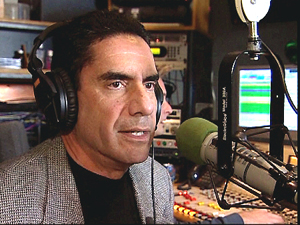
Marc Rudov
A few years ago Marc Rudov was a powerful voice for men and advocate of more sane relationships, before he shifted away from the topic and into other spheres of interest – mainly to his career in marketing. Rudov was not a fan of the ‘men and women are different’ narrative, and he appeared to take seriously the finding that the human species, while showing some dimorphic features, is overall relatively monomorphic.
Feminists and men’s rights activists, not to mention most MGTOW and PUAs, tend to focus exclusively on that dimorphic side of the equation, thus setting themselves up for legitimate charges of dimorphic essentialism – i.e. they overstate the case. With such help from the manosphere, feminists appear to have won the upper hand due precisely to that championing of difference – regardless of whether the differences ultimately be considered biological, sociological or both in origin. The reason male and female ‘difference’ has helped feminists so much is because it garners chivalry – and conversely ‘sameness’ gains no such chivalry – and is thus to men’s advantage in the project of challenging discrimination against men.
Chivalry lays at the root of every success feminists have achieved.
Today, gender warriors on both sides tend to be totalizing in their emphasis on difference because that’s the myth they live by and gain power from, making them somewhat anxious at departing from that existential anchor.
However the human psyche is wildly open to variable expression, much more so than most animals it seems, which is one of the reasons Marc Rudov found himself at odds with the manosphere. It would be interesting to ask him if it was the deal breaker that saw him turn his back on the movement. Whatever the case, Rudov held firmly to the view men and women are basically similar – at least in potential – as we read in the following quote:
[Rudov] “I’ve recently published a book about women and know them well. My true education in all things feminine began almost 12 years ago, when I became reimmersed in the single world after my divorce. During this post-marriage odyssey with the “opposite” sex, I learned that women are not so opposite and are, in fact, much like men. To me, this is no longer a debate; it is fact. Now, we hear almost daily from anthropologists, psychiatrists, psychologists, licensed psychotherapists, so-called life coaches, movies, books, magazines, TV, radio, parents, friends, lovers, and standup comics that men and women are wired differently and hopelessly incompatible. We are coached to accept, embrace, and gingerly navigate these differences. Nonsense, I say. If you believe this propaganda, you are part of the problem.”
“If you’re honest with yourself, you cannot find many real differences between men and women. The differences you’ve always thought about are socialized differences based on myths. If women were as different and mythical as the so-called experts would have you believe, they’d never be able to run major corporations, cities, states, and nations. When we stop behaving according to our socialized programming, our stereotypical roles, we are surprisingly similar. This behavioral shift is the solution for making our romances more harmonious and successful.”
His words here are very much at odds with the usual emphasis in the manosphere, but it nevertheless didn’t stop him being one of the most powerful voices ever to speak on gendered issues in spite of – or perhaps because of – his view of men and women as made of precisely the same stuff. Whether he was right or wrong, his perspective had a considerable influence on the current debate.
___________________